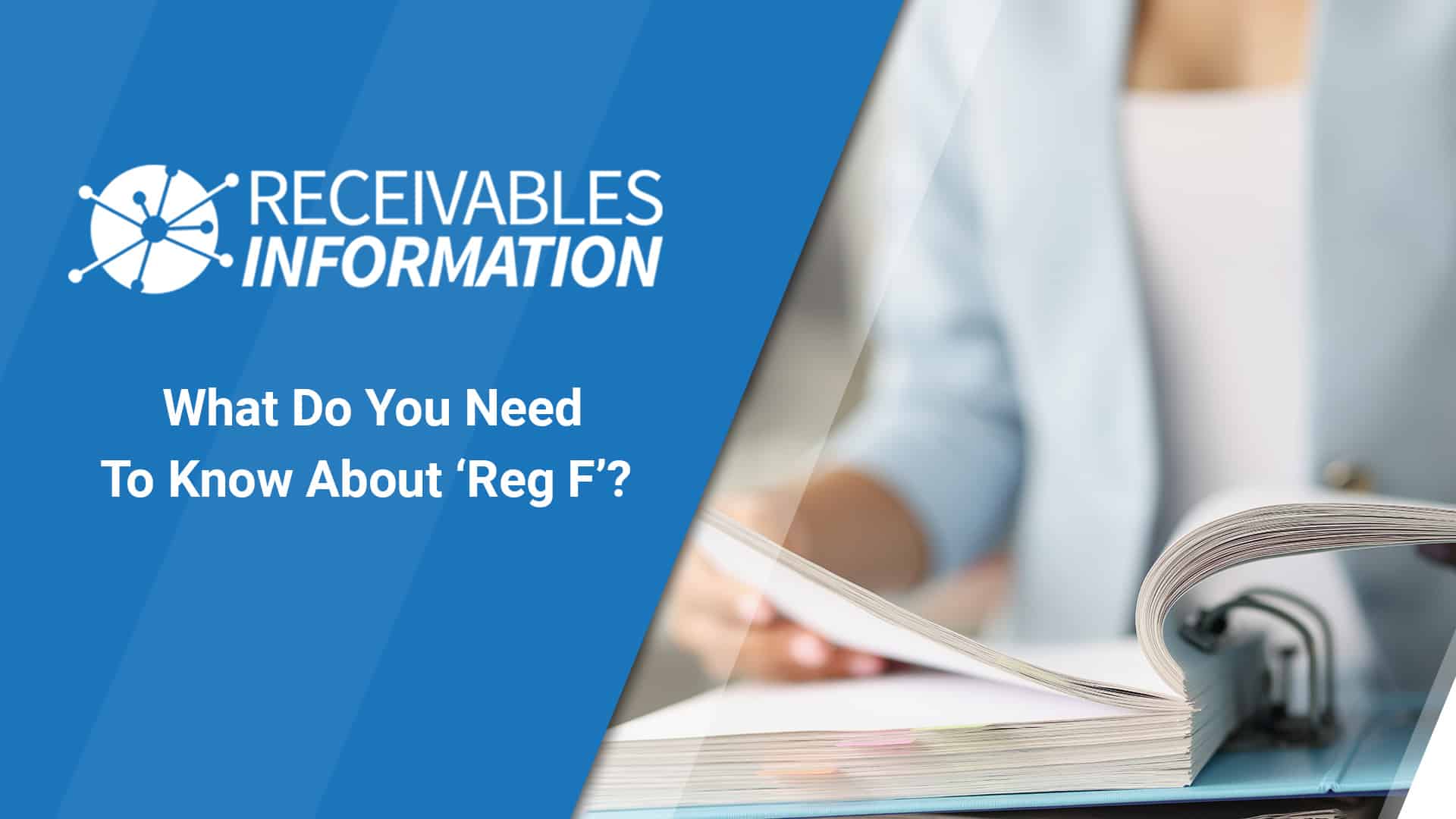
What Do You Need To Know About Reg F?
Since Regulation F’s final rule proposal in 2020, the Consumer Financial Protection Bureau’s (CFPB) “Reg F” has made waves throughout the accounts receivable management (ARM) industry. What was finalized as two separate final rulings, Reg F went into effect on Nov. 30, 2021. But what is Reg F, what are the final rules, and how does it impact the collections industry?
What Is Regulation F?
In 2011, the CFPB began as the United States’ newest regulatory body. With jurisdiction over all major financial sectors, the CFPB’s goal is to ensure the “consumer financial markets work for consumers, responsible providers, and the overall economy.” The CFPB issued the Code of Federal Regulations (CFR) shortly after its inception. Listed B-Z, these regulations are updated yearly and modified through “final rulings” by the CFPB should they see fit.
In 2013, the CFPB began work supplementing the Fair Debt Collection Practices Act (FDCPA) and registered it in their CFR as “Regulation F.” Over the course of 7 years, the CFPB worked closely with FDCPA stakeholders and issued several final rulings in 2020 to be implemented in 2021. These rulings became known as “Reg F.”
The Final Rules
Reg F’s FDCPA modifications—split between two final rules—tackle a host of “modernizations” for the ARM industry. With over 50 individual rule changes, these final rulings mainly address four key areas:
Validation Notices for Debt Collection
The largest change in Reg F comes in the form of validation notices. These notices are sent to the consumers within five days informing them of their FDCPA rights and include “Mini-Miranda” warnings about the purpose of their communication. The new changes require that all validation notices include:
- The consumer’s name and address
- The collector’s name and address
- What type of debt is being discussed
- The account number associated with the debt
- The original creditor to whom the debt is owed
- The date and amount of debt owed
- An itemized list of the debt including interest, fees, payments, and credits since the itemization took place
- And the total amount of debt
Along with the rule changes, the CFPB has begun providing Validation Notice templates.
Electronic Communications From Debt Collectors
As the FDCPA has mostly been left unchanged since its implementation in 1978, the CFPB modernized the rules and regulations surrounding electronic communications. The rule officially recognizes that email and text communications—should the consumer opt-in—satisfy written requirements in the FDCPA.
With this change comes a renewed commitment to ensuring that all communications give consumers valid “opt-out” or “unsubscribe” options for all forms of communication. As consumers can opt out of email or text messages, collectors also cannot impose fees on those who wish to be contacted by other means.
Call Restrictions
With new communication rules comes a renewed focus on call restrictions. Collectors will now violate the FDCPA should they place a call to a consumer about one particular debt more than seven times within seven consecutive days. In addition, you may violate the FDCPA if you call within seven days of having a telephone conversation with a consumer or reach their voicemail. Calls to consumers are now prohibited between 8 a.m. and 9 p.m. in the consumer’s time zone and debt collectors must cease from contacting a place of employment unless “a consumer gives the collector permission or a court permits the communication.”
Unfair Conduct From Collection Agencies
Additional smaller rules have been placed on what is deemed unfair conduct. Fairly straightforward restrictions against vulgar language, harassment, and the banning of coercive advertisements are followed by smaller restrictions like limitations on what symbols can be placed on envelopes. For example, collection agencies are not allowed to use any symbol other than their name unless their name does not indicate they are a collection agency.
The Impacts Moving Forward
The waves Reg F has made in the ARM industry continue to be felt months after its official implementation. With changes to how traditional calls and communications are made, ARM industry trade organizations like ACA International and the Receivables Management Association International (RMAI) have held listening sessions, educational seminars, and developed resource centers for agencies struggling with the new regulations.
At its core, Reg F now requires agencies to review their procedures and internal record policies to adjust to the CFPB’s modernization of the FDCPA. With major changes to communications, validation notices, and what is deemed unfair conduct, understanding what Reg F means and what changes will impact your organization is more important than ever.
Learn More
To learn more about the ARM industry as a whole, follow Receivables Info on LinkedIn, Facebook, and YouTube. Be sure to also check out our Money Chat series for more ways to grow in financial education while exploring the receivables landscape.
About Receivables Info
The Receivables Info team is led by receivables management industry veterans who wanted to create a website for the industry, by the industry. Their goal is to provide a voice to high-quality debt buyers, collection agencies, law firms, and industry veterans to share information about their businesses and their place within the marketplace and the community. The website provides relevant news alerts, articles, videos, and other receivables-related information to industry partners and colleagues around the industry and the globe. Receivables Info is also home to financial education resources for consumers through series like Money Chat.
The information contained in this article is meant to serve as general guidance for entry-level to mid-level ARM industry professionals and is not meant to serve as comprehensive business, legal, or financial advice.





